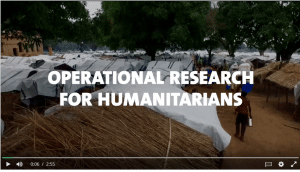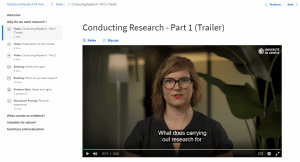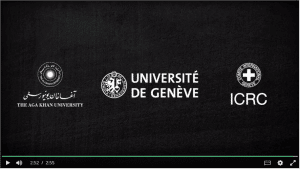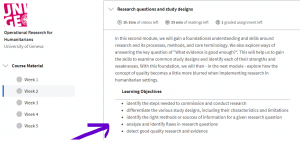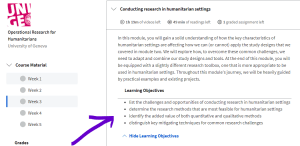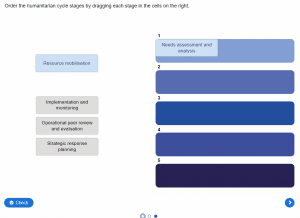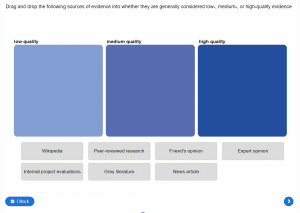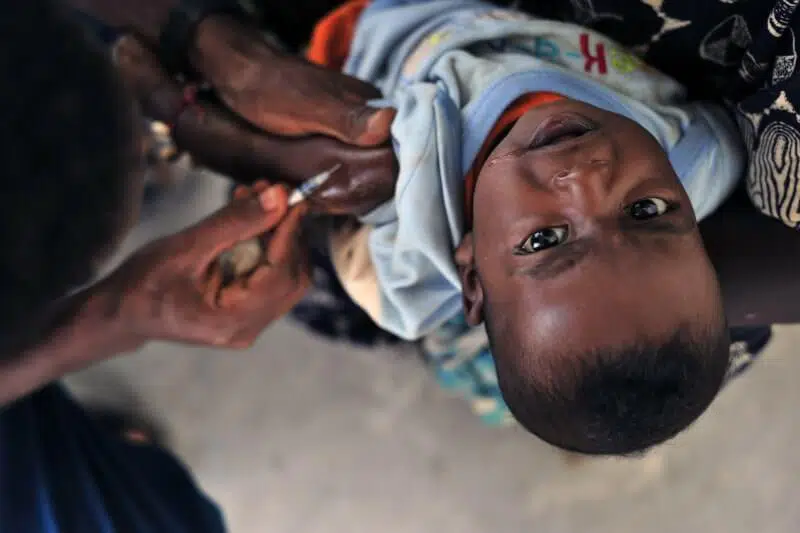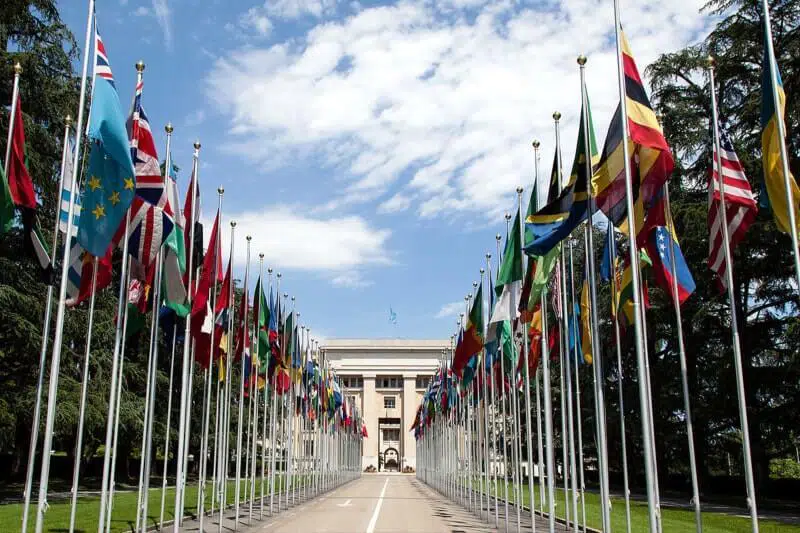| University of Geneva | |
| 17 hours | |
| Coursera | |
| English | |
| 5 weeks |
Learn how to conduct research for humanitarian practice from University of Geneva, the International Committee of the Red Cross (ICRC) and Aga Khan University.
Researchers make sure that the work of humanitarian organizations is based on well-established facts. They are essential for humanitarian operations. Operational research plays a vital role in humanitarian organizations, as it helps to identify and solve problems that can improve the efficiency and effectiveness of humanitarian practice. The application of operational research techniques can help to optimize resources, plan for and respond to emergencies, and enable better ways to conduct humanitarian operations.
In this course by University of Geneva you will develop fundamental knowledge and skills to engage in humanitarian research. The course will cover humanitarian research methods, study design and outline how operational research can advance humanitarian practice. In this course you will tackle the most fundamental questions of humanitarian research:
- Why do we need humanitarian research?
- What counts as evidence in humanitarian research?
- What does the humanitarian research process look like?
- How to choose a humanitarian study design?
- Challenges and opportunities during the humanitarian research process
- Quantitative and qualitative research methods
- What are ethical risks during humanitarian research?
- Community engagement and participatory methods in humanitarian research
- and accountability to donors, communities and partners
The entire course takes roughly 17 hours to complete and is self-paced. The instructors recommend taking it over the course of five weeks. Finishing this course will be particularly useful to junior researchers and humanitarian professionals, but everyone with an interest in humanitarian work will benefit from it.
How will you learn?
The course contains a variety of reading materials, expert videos and quizzes to help you better understand the concepts of operational research. Beyond these elements, the course also features a variety of custom H5P activities that are ungraded. Here are a few examples:
The first introductory video on conducting research in humanitarian settings is narrated by Dr Emilie Venables who is senior researcher at International Committee of the Red Cross (ICRC). To enhance accessibility, videos contain subtitles and downloadable transcripts. Unlike some other courses the video has excellent sound quality and contains B-roll footage from humanitarian settings.
Another aspect we liked about this course is that it clearly outlines the learning outcomes and uses measurable action-verbs, meaning it will clearly identify what you will be able to do after completing the course. Here are some examples.
As previously outlined the course also contains custom developed H5P elements. These ungraded elements are mostly drag & drop activities that help you understand essential processes of humanitarian research. Here are a few examples: The first screenshot shows a drag & drop activity on the humanitarian cycle. In the second activity you’ll learn to differentiate between high- and low-quality evidence.
How do you receive a passing grade?
The course includes 5 quizzes at the end of each module that each count 20% towards your passing grade. To pass the course, you need to answer 80% of each quiz correctly and you have two attempts every 48 hours to get there. The quizzes are not easy as many of them are multiple choice (where multiple answers need to be checked instead of only one) but if you properly participate in the course, you won’t have any problems passing.
What does the course cost
You can audit the course for free or choose to opt-in for a verified certificate for a fee. Prices may vary based on your location and currency but are normally around USD 49. Please note that this might change in the future, so always check the current pricing on the official page. Financial aid is available for those who qualify through the course provider.

